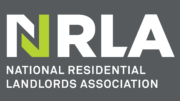Landlords earning over £50,000 a year have just 12 months before a major tax reporting overhaul comes into force. From April 2026, quarterly digital tax submissions to HMRC will be mandatory under Making Tax Digital (MTD)-and experts warn that missing the first August deadline could trigger penalties running into the thousands.
Quarterly reporting will replace annual landlord tax returns
Under the new MTD rules, landlords above the £50,000 income threshold will no longer be able to submit a single annual return. Instead, they must file four quarterly updates, starting with the period from 6 April to 5 July 2026, due by 7 August 2026.
Tax adviser Robert Jones told Accountex that the changes will catch out anyone relying on last-minute filing: “From April 2026, landlords earning over £50,000 will need to start submitting quarterly updates to HMRC. Missing it could trigger serious financial consequences.”
Failure to file on time will lead to a £100 fine, followed by daily £10 penalties after three months-up to £900. After six months, HMRC can impose a further £300 fine or 5% of the tax owed, whichever is higher, with the same penalty applying again at the 12-month mark.
Late payment fines will compound the cost
Even landlords who file on time could face penalties if they fail to pay tax by the due date. Jones explained: “You’ll be charged 5% of the unpaid tax after one month, another 5% after six months, and a further 5% if it’s still unpaid at 12 months. On top of that, interest continues to build from the moment your payment is late.”
The rules will also require landlords with both property and self-employment income to keep separate records and submit two sets of quarterly reports. That means managing multiple reporting deadlines and ensuring compatible accounting software is in place before April 2026.
A survey by Accountex found four in five accountants see MTD as their biggest challenge for the year ahead, with one in three feeling unprepared for the deadline. Alarmingly, 10% described themselves as “very unprepared.”
Use the next 12 months as a ‘test run’
Jones urges landlords to treat the year ahead as preparation time rather than waiting until the last minute: “Digital tax reporting might still feel like a future concern, but many sole traders and landlords are far from ready. Even if you’re not due to join the scheme until 2027, now is the best time to get ahead while there’s still room to learn without financial pressure.”
Practical steps include moving to cloud-based bookkeeping systems, logging expenses in real time, and separating personal from rental finances. “Shifting your habits from annual admin to regular digital updates will make the transition much easier,” Jones said.
One Nottingham landlord who trialled quarterly reporting for her letting business said the switch was “a culture shock” at first, but has since made it easier to track profitability and plan for tax bills. “I know exactly where I stand every quarter now-no more nasty surprises at year-end,” she said.
Editor’s view
MTD is not just a compliance exercise-it’s a fundamental change to how landlords manage their books. Those who adapt early could turn it into a planning advantage, while those who delay risk unnecessary fines and stress. With 12 months to go, the choice is clear: treat this as a final warning or a head start. The landlords who see it as the latter are likely to come out ahead.








